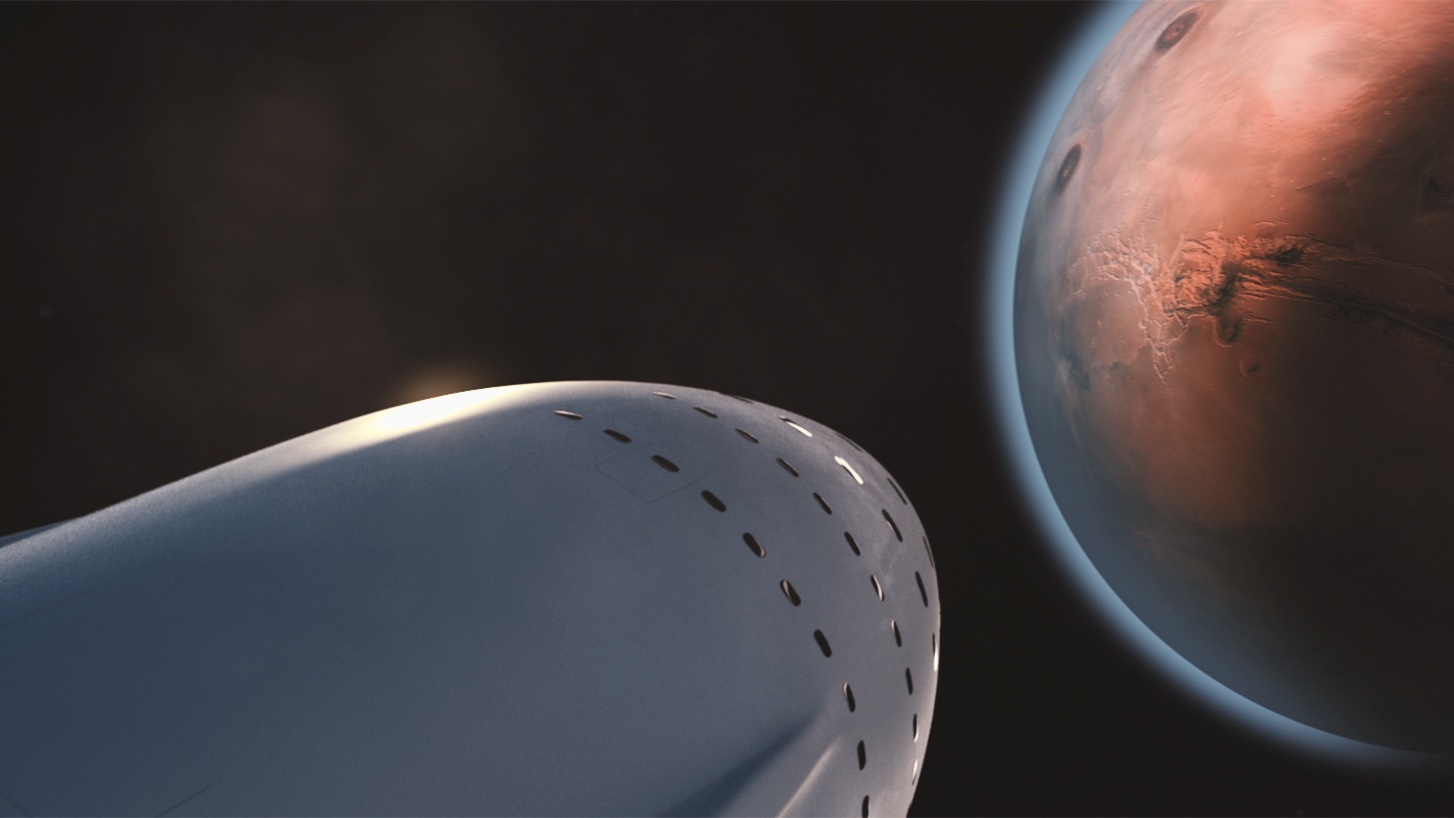Who'll be first to Mars?
A new space race is kicking off
SpaceX founder Elon Musk has spoken many times about how his ultimate plan is to colonize Mars, and the firm has a comprehensive vision to achieve that goal. Its Interplanetary Transport System (formerly known as the Mars Colonial Transporter) includes a launch vehicle, spaceship and tanker that would allow a propellant plant to be build at a site named Mars Base Alpha. How soon? According to an "optimistic" schedule, the first crewed flight, carrying "about a dozen people", could launch as early as 2024.
While that all might sound like pie in the sky, the plans released by the company are long-term in scope, and extremely detailed. With Musk's deep pockets and total commitment to the cause, and despite the company's relatively short history compared to its competitors, SpaceX is perhaps the closest of any space-going entity to landing on Mars.

Musk does have some commercial competition, though none has as well-developed plans. Lockheed Martin is working on its Mars Base Camp project, which would supposedly send astronauts to Martian orbit as early as 2028. Amazon CEO Jeff Bezos' Blue Origin spaceflight venture is also taking aim at Mars.
The much-maligned Mars One project, however, is barely worth discussing, nor American space tourist Dennis Tito and his Inspiration Mars Foundation, both of which have been pretty quiet of late. Meanwhile engineer Robert Zubrin reckons his Mars Direct concept – a mission that's been in the planning stages since at least 1990 – could be delivered on board cheap SpaceX rockets, so that's an outside shot.
No, really, don't forget Nasa
But amidst all the private firms rushing to the Red Planet, Nasa has its own proposals. In 2015, Nasa's then-administrator Charles Bolden reaffirmed the agency's goal of sending humans to Mars, picking 2030 as the date of a surface landing, with robots arriving beforehand to prepare an underground base for astronauts.
The spaceship carrying Nasa's astronauts will be the Deep Space Transport, announced in March, which will dock with a space station in lunar orbit (built by Boeing) called the Deep Space Gateway. Nasa's human exploration administrator, William Gerstenmaier, said the gateway "could move to support robotic or partner missions to the surface of the moon, or to a high lunar orbit to support missions departing from the gateway to other destinations in the solar system".

The future of Nasa's plans for manned Martian exploration are now, however, in the hands of Donald Trump, a man whose space policy is – like many of his other policies – tough to glean. The Trump administration has said very little about its plans for human spaceflight, so Nasa seems to be just carrying on until told otherwise.
Sign up for breaking news, reviews, opinion, top tech deals, and more.
All we know for now is that Trump's space advisors want "private American astronauts, on private space ships, circling the Moon by 2020", that Elon Musk sits on Trump's advisory board of business leaders, and that there's strong bipartisan support for a 2030s Mars deadline in Congress. The latest dates from Nasa set a humans-to-Mars mission for 2033.
Photo finish
So, where does that leave us? Europe is too divided, Russia and Japan too uninterested, and India too far behind to compete. That means a strong likelihood that the first person on Mars will be American (but with no clear idea if they'll be working for the government or not), and an outside chance that they might be Chinese.
Beyond that, there are too many sources of uncertainty. Changing relationships between China, Russia and the United States – three of the biggest players in space exploration – could dramatically shift global geopolitics, and the timelines for space exploration along with them. A new Cold War could spark a new Space Race, rapidly accelerating technological development, while Elon Musk does his own thing in the background.
But one thing is for sure – for Mars enthusiasts, the coming decades will be very exciting indeed. And if you'd like to fire your imagination in the meantime, we'll leave you with this video from SpaceX showing how Elon Musk sees his own dreams unfolding…

